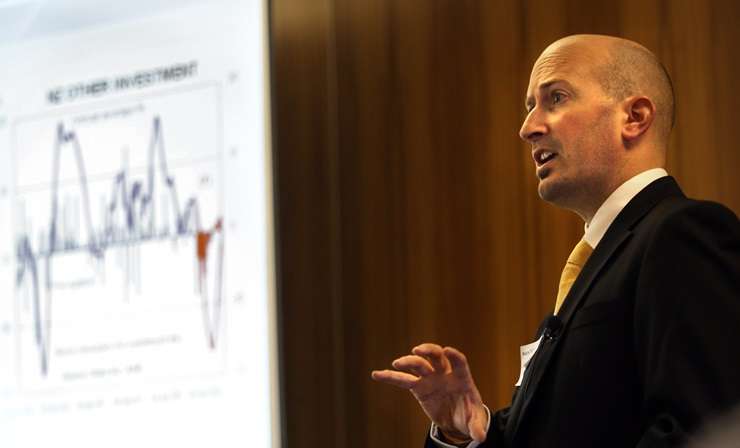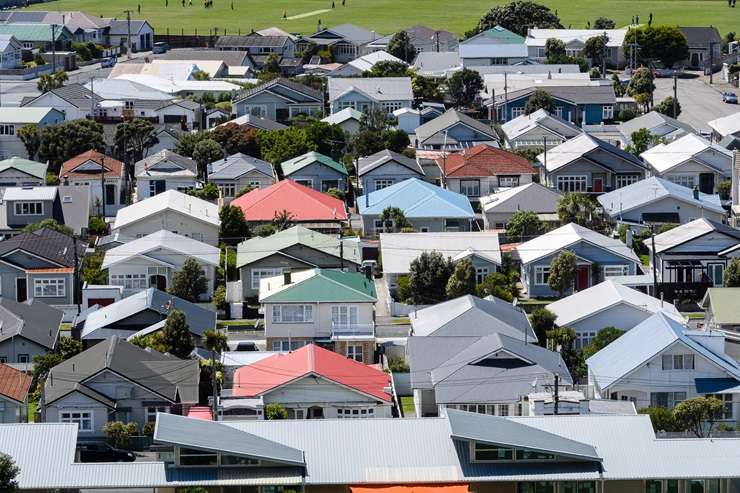Bank economists are tipping a slow and gradual increase in house prices of between 5 and 8% throughout 2024 as soaring immigration during 2023 emerged as the unexpected driver of an earlier than forecast upturn.
The consensus among economists is a sense of caution for 2024, many expecting the Reserve Bank to call time on its tightening cycle as inflation trends down, but they also cite strong migration as a potential ankle tapper causing housing activity to run hotter than the Reserve Bank’s expectations of 5.5%.
BNZ chief economist Mike Jones said the last six months had seen a grinding recovery from the bottom of the market in April and BNZ’s predictions house prices would stabilise around the middle of this year had come to fruition.
“I think it’s clear the market has stabilised but it’s not roaring away. We have a 7% increase for house prices on the board and we still think that’s a reasonable assumption. We still have high mortgage rates and while demand is picking up it’s still patchy,” said Jones.
Start your property search
An increase in listings, in excess of demand, meant good options for buyers, potentially limiting price rises, but record migration and the cost to build would also continue to impact, driving prices upward.
“With record migration and 2.5% population growth we know we’re going to need more houses but the cost to build or buy the gap has never been wider for developers,” said Jones.
“House prices have rounded the turn and are now rising again. Expectations of a hot summer are wide off the mark though. High mortgage rates will stick around for most of next year and the economy is stuck in low gear,” BNZ wrote in its November Property Pulse.
Read more:
- Tony Alexander: Three global threats that could derail house price revival
- Revealed: The 35 cheapest city suburbs where buyers can still grab a bargain
- House-flippers push Otara prices back to the $1m mark
ASB chief economist Nick Tuffley also tipped a 7% increase over 2024 with positive migration flows becoming more moderate during 2024.
“We’re putting another Hamilton into New Zealand, and those people are needing somewhere to live and that’s going to create demand.”
He said 2023 played out as expected but strong migration had turned the market around faster than many expected.
“The pace of the market at the moment is very gradual but we do expect it to get more of a head of steam in 2025 when we also expect interest rates to start coming down,” said Tuffley.

ASB chief economist Nick Tuffley: "“The pace of the market at the moment is very gradual." Photo / Supplied
ANZ economist Andre Castaing offered a more cautious perspective however, anticipating a substantial slowdown in growth as the economy cools and the labour market weakens towards the end of 2024.
Castaing emphasized the importance of house prices in driving economic activity and expected a period of cooled growth, although the timing is uncertain.
“It’s hard to tell the timing of that story but we do think that house prices are likely go through a period of cool growth in 2024,” said Castaing.
“House prices are one of the main things that drive economic activity in New Zealand and residential investment. The Reserve Bank wants to cool the economy and part of that is cooling the housing market.”
He expects higher mortgage rates and a softening labour market will continue to cap borrowing capacity and demand more broadly, limiting the upside for house prices.
Jarrod Kerr, Kiwibank chief economist, diverged slightly, expecting a 5 to 7% increase in house prices, citing potential mortgage interest rate cuts throughout 2024.

Kiwibank chief economist Jarrod Kerr: “We've just imported 120,000-odd people, which is massive." Photo / Fiona Goodall
Kerr highlighted the significance of government policies including a reduction in the bright-line test and mortgage interest deducibility as having investor influence.
“Investors haven’t been as influential in the last couple of years as they normally are. We’re expecting them to come back in and we’re hearing very early anecdotes they are, so what we’re tipping for rates is probably on point,” said Kerr.
He also pointed to supply not keeping up with housing demand.
“We’ve just imported 120,000-odd people, which is massive and if you think that there’s 2.5 people per house, there’s at least 40 to 50,000 homes that we need to build just for the people that we’ve imported in the last year.”
He said predictions for 2023 had largely been fulfilled although they had been pessimistic with a 20% reduction in prices turning out to be 18%.
“We may find we’re a bit pessimistic again with a 5 to 7% increase in 2024 but that’s forecasting, it’s a tough game.”
Westpac chief economist Kelly Eckhold said they were tipping house prices going up about 8% and had upgraded forecasts for 2025 and 2026 on the back of strong population growth. He was happy with that figure despite the Reserve Bank’s forecast for 5.5%.

Houses in Wellington. Rising migration numbers are expected to put pressure on the housing market, especially in the major centres. Photo / Getty Images
“We don’t see any further cooling in the market. House sales and volumes and prices should continue to track higher, but it’s not boom market by any stretch, but growth will outstretch inflation over the next 12 months.”
He expects population growth to fall off through 2025 with annual net migration trending down but the unexpected quantity was if migration took longer to slow.
He said prediction for 2023 had seen the housing market bottom out 4 to 5% stronger than predicted. They had just 1% house price growth into next year and now they predicted 8%.
“We anticipated the second half of this year we would see house prices continuing to fall and that just hasn’t been the case. The thing that has really turned that around is the shift in migration and the public feeling more confident we’ve reached the bottom and stepping into the market.”
Use the search field to find out the best mortgage deals available today.


















































































